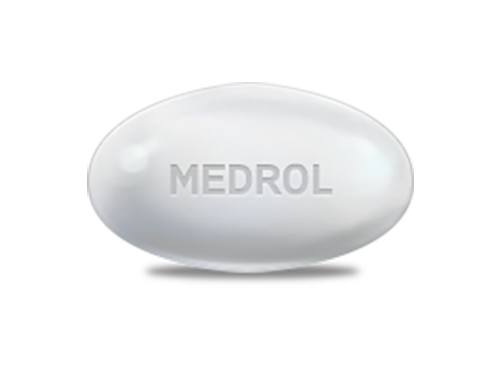Allegra (fexofenadine) is a second-generation antihistamine used to relieve sneezing, runny nose, itchy eyes, and hives — without the drowsiness often caused by older allergy medications.
It starts working within an hour and is safe for daily use during allergy season or for year-round symptoms. Here’s what you need to know about dosing, timing, and what makes Allegra different from other antihistamines.
Allegra Product Description
Drug Uses
Allegra is a third-generation antihistamine commonly prescribed to both adults and children aged 6 years and older. It is used to relieve allergy symptoms associated with seasonal allergic rhinitis, perennial allergic rhinitis, and chronic idiopathic urticaria. Allegra works by selectively blocking H1-receptors, preventing the effects of histamine—a substance responsible for triggering allergic reactions. This action helps reduce inflammation and discomfort caused by allergens in the respiratory system, skin, and eyes. Allegra effectively alleviates sneezing, nasal congestion, runny nose, red and itchy eyes, throat irritation, and skin rashes. One of the notable benefits of Allegra is its non-sedative formula, allowing patients to continue daily activities without feeling drowsy or experiencing slowed psychomotor function. The standard recommended dose for children aged 6 to 11 years is 30 mg twice daily. For adults and adolescents 12 years and older, the typical dosage is 60 mg twice daily, although some patients may be prescribed a once-daily dose of 180 mg for greater convenience. Allegra provides fast, reliable, and long-lasting allergy relief without compromising mental clarity or focus. It is often chosen by those seeking an effective antihistamine with minimal disruption to their daily routine.
Missed Dose
Clinical research has shown that missing a single dose of Allegra generally has no significant impact on the overall effectiveness of treatment. However, to maintain stable symptom control, it is important to follow the prescribed dosing schedule as closely as possible. If you miss a dose, simply take the next scheduled dose without doubling up. If less than five hours remain before your next dose, skip the missed one altogether. Regular and timely intake of Allegra helps ensure continuous protection from allergy symptoms. Patients are encouraged to set daily reminders or alarms to prevent accidental missed doses and to consult their healthcare provider if multiple doses are missed. Consistency in dosing maximizes the therapeutic benefits of the medication.
Clinically reviewed | Based on prescribing guidelines for fexofenadine in allergic rhinitis and chronic urticaria.
Allegra is typically prescribed at 60mg twice daily or 180mg once daily, depending on symptom severity and patient age. It’s well-tolerated and available in over-the-counter and prescription forms.
More Information
Allegra has been proven to have no significant effect on the ability to drive or operate heavy machinery, making it an excellent choice for individuals with demanding work schedules. Nevertheless, patients should monitor their own response to the medication before engaging in tasks that require full attention. Allegra has minimal interaction with other drugs, offering flexibility for those who require multiple treatments. However, it is advisable to maintain a two-hour gap between Allegra and any antacids, as they may affect absorption. Thanks to its favorable safety profile, Allegra is widely trusted by healthcare professionals for long-term allergy management. Patients experiencing persistent symptoms despite treatment should consult a specialist to explore potential adjustments or complementary therapies.
Storage
To maintain its effectiveness, Allegra should be stored in a dry place at a temperature not exceeding 30°C. Protect the medication from direct sunlight and excess moisture by keeping it in its original packaging. No special refrigeration or additional storage precautions are required. Keep Allegra out of reach of children and pets, and always check the expiration date before use. Proper storage ensures that Allegra remains potent and safe for the duration of its shelf life. Dispose of any unused or expired medication responsibly, following local disposal regulations.
Allegra Safety Information
Warnings
Elderly patients, as well as those with liver or kidney impairments, typically do not require dose adjustments when using Allegra. However, individuals with renal insufficiency may experience a slightly higher risk of side effects and should be monitored closely. Pregnant or breastfeeding women should only use Allegra if the benefits clearly outweigh any potential risks to the fetus or infant. Allegra is not metabolized in the liver, which significantly reduces the likelihood of drug interactions with medications processed through hepatic pathways. To avoid absorption issues, it is recommended to take Allegra at least two hours apart from antacid medications. Always consult with your healthcare provider before starting Allegra if you are taking other treatments or have pre-existing health conditions. Regular medical checkups are advised for patients using Allegra long-term.
Disclaimer
The information provided about Allegra is intended for educational purposes only and should not replace the advice of a licensed healthcare professional. Always seek medical guidance before starting, stopping, or changing any medication. This online resource does not guarantee the accuracy or completeness of the details shared regarding Allegra or its usage. Your healthcare provider is the best source of information tailored to your personal health needs. We accept no liability for any misuse or misinterpretation of the information presented here.
Allegra Side Effects
Allegra is generally well-tolerated and associated with a low risk of serious adverse reactions. Less than 4% of patients participating in clinical trials discontinued treatment due to side effects. The most common adverse reaction, reported in approximately 3% of patients, is headache. Other mild side effects, occurring in less than 2% of patients, may include drowsiness, earache, dry mouth, dizziness, indigestion, diarrhea, nausea, and fatigue. In children, upper respiratory tract infections, coughing, and fever have been observed more frequently. The likelihood of side effects may increase with higher doses or prolonged use, particularly in those managing chronic allergies. It’s important to report any unexpected symptoms to your healthcare provider for evaluation. While Allegra is considered safe for both short-term and long-term use, individual reactions may vary. Continuous monitoring and communication with your doctor help ensure the best therapeutic outcome.
Looking into other allergy medications? Compare Claritin or Zyrtec to find the best option for your needs.











Reviews
There are no reviews yet.